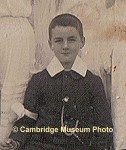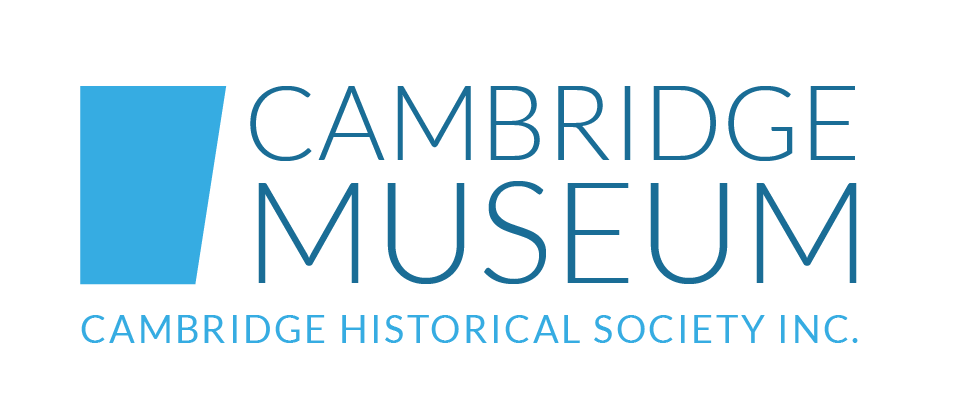Cambridge Collections
Old Cambridge

(By K L Wilkinson, From ‘The News and Theatre Courier’ 12 August 1936)
‘Cambridge, my birth-place, still my home-town. This Jubilee time [Cambridge Borough Council 50 years Jubilee] naturally sets free a flood of reminiscences – some gay, some sad. The old pioneers – dashing young men of the village, when Cambridge attained the dignity of borough-hood – now gather together, seeking the sun or a blazing fire to warm their aging blood, as they recall the stalwarts and their deeds of daring do, in the grand old years gone by – the express guided by King Carter, an American upright and tall, at ninety; Thomas Wells; the Hally brothers; Von Tempski and his art. But these heroes were resting on their laurels even in my childhood days. My earliest memory goes back only a scant thirty years.’
‘Big fires – the quickest way to attract a crowd. Salthurst; Gardiner’s Store; the Masonic Hotel; the National ; Crowther and Bell’s stables; Wainoni boarding house – all disappeared in leaping flames and curling smoke. How eagerly we searched the cooling ruins; how triumphantly we pounced on glass, melted beyond recognition, or bragged about remnants of charred wallpaper, discovered, whirled away by eddies of fierce heat, for nearly a mile.’
A Boy’s Paradise.
‘The long summer days loafed away in the Karapiro creek, then a delightfully clear, sandy bottomed stream meandering along between glorious beaches, unchoked by a prolific growth of willows. The twelve o’clock rush – excited swarms of small boys, out from school, tearing down Duke Street, disrobing as they ran, until, when they reached the creek, they dived straight in, naked as the day they were born.’
‘The thrilling floods of 1907, when this same gentle creek bulged to a swirling angry torrent, tearing at the decking of its bridge – how gaily we dived from the tree tops into the waters only two yards below. Cambridge boys could always swim, even in those public-bath-less days and the fierce old Waikato River held no danger for them. The crowds on the old Red Bridge waiting for it to be carried away; it was forcefully man-torn down several years later. The object of much small-boy hero-worship – the important youths who could ride their bicycles up the water-coursed rough Duke Street hill striving manfully to appear nonchalant against their laboured breathing.’
‘The old flickering gas-lamps, lit and extinguished every night by a man with a taper and a hook on the end of a pole. That recalls the darkly illuminated sandy Victoria and Duke Streets, with clouds of dust in summer. Compare them now with our smooth permanent surfacing and our community lighting, and our streets in a blaze from the latest moonlight electric bulbs. By the way, the hotels closed at 10 pm in those happy days. We thought nothing of stepping over the recumbent form of a drunken man, ‘sleeping it off’ as we picked our way home in utter darkness, after a very occasional visit from the travelling picture-show, held with many stops and starts and blurrings in the old wooden Town Hall.’
Duck Boards in Duke Street.
‘Do you remember the fearful weather that persisted during the tarring and sanding of Duke Street? Duck boards buried in a sea of mud were only a slight advantage over the knee-deep morass. The medals commemorating King George’s coronation, so proudly worn by all the school children; the thunderstorm and the rain-drenched flags, the awe inspiring cocked hat of the Governor when he opened our high level bridge, the first of its kind in the Southern Hemisphere. During its building Cambridge was the Mecca of all Sunday afternoon walkers. One Sunday a gloom was cast over the borough. A happy youth threw a stone into the river, many feet below, and a dog, in a faithful attempt to retrieve it, leaped to his death.’
‘Then our Show – The Event of the year. Girls all resplendid in spanking frocks, new for the great occasion; boys suddenly most obliging and polite, eager for pennies in anticipation of the supplies of ice-creams and candy-floss; the exciting ride out in Crowther and Bell’s huge brake; the numberless compositions written at school for weeks after, on ‘The Cambridge Show’ the only dark spot on an otherwise Elysian existence.’
‘The long toil from the creek, up the hill, along the dusty streets, to where Mr Len Howarth’s shop is now [1936], to be amply rewarded by ‘ices’, at the one solitary place which had them in once or twice a week – if we were lucky. The hub-bub of fuss and excitement when the crowded three o’clock train arrived; the queue up after school for mail and paper; Mr Norries’ hansom cab – one day the horse ran away. Those privileged to witness this sensation were the admiration and envy of the rest of the school for weeks.’
‘The Rose Show held in a grand marquee in the Government Acre for three days; lit by bubbling acetylene lamps. This fair was the centre of fun and gaiety of the whole district, regardless of caste, colour or creed. Archdeacon Willis, a benign and gentle figure, welcoming all; Messrs Wells and Buckland vying with each other for the blue riband of chrysanthemums.’
The Land Courts
‘The Maori Land Courts held in Cambridge; their encampment on Carter’s Flat, the rendezvous for every Maori; our youthful interest in their hangis (native ovens); the dazzling multi-coloured washing waving on the neighbouring fences; the voluminous skirt of one chieftainess – she herself a voluminous woman, about 30 stone.’
Years of the War
‘Then came the years of the War. The railway engine tooting triumphantly, ‘Hip, hip, hooray’ as it drew away our first young soldiers from the cheering, weeping relations and friends on the crowded platform; the town’s dreadful sorrow as it faced up to its first grim reality of war; the first casualty list from the Gallipoli landing. It was hard to believe that strong gay young men, born and reared in our town – boys we knew so well – had died in a foreign land. Women, girls and boys knitting everywhere, khaki and grey wool, in church, at the pictures, every spare moment, knitting. The calico swathed parcels, jammed with cakes, sweets and comforts sent overseas, to the ‘boys’. The eagerly seized letters with the ‘On Active Service’ stamp; the dreaded figure of the telegram boy; the enthusiastic reception on the Town Hall steps to our first returned wounded; the Sanatorium on Maungakawa hill, converted into a soldiers’ hospital; the singing and dancing in the streets at Armistice time, whilst those who had lost bravely hid their tears and danced and sang as loudly as the most careless flapper.’
‘The influenza epidemic – the Town Hall crowded with sick; volunteer nurses most willing; Dr Stapley a tireless and cheering worker; the sad loss of Nurses Watt and Veale. Cambridge deaths were the least in New Zealand.’
‘Then came the founding of soldier settlements at Te Miro and Reynold’s estate. We saw the bush-clad hills gradually converted into green pasture; the narrow clay tracks give way to decent metalled roads.’
‘The 7p.m. post-war thrill – two gay youths then – now sober business men – doing their nightly stunting turns on racing motor-cycles up and down the main streets – no Mr Green [traffic officer] in those heydays. The heavy boom across the Waikato River, holding in check the battalions of pine logs hurtled down from the pine plantations at Gorton. What a placid swimming pool that bay was.’
The Present
‘And so memory bows before the present day events, and I see Cambridge as it is. Gone is the callow town of my youth; gone are the dimly lit rough streets; the little uneven floored shops with small windows in which the displays were changed but seldom. In its place stands a modern, self-contained borough, with excellent lighting, first-grade roads and paths, a splendid water supply and drainage, every facility for all sports, golf, tennis, bowls, polo, and at a fee that is ridiculously small. And for all these city advantages the rates are slightly more than the penalty charged by less fortunate towns on their arrears.’
‘Nothing is too good for Cambridge. All through the years of its existence this has been its people’s boast, and today finds us with all the good things in life, that wise management and naturally happy surroundings can bestow.’
